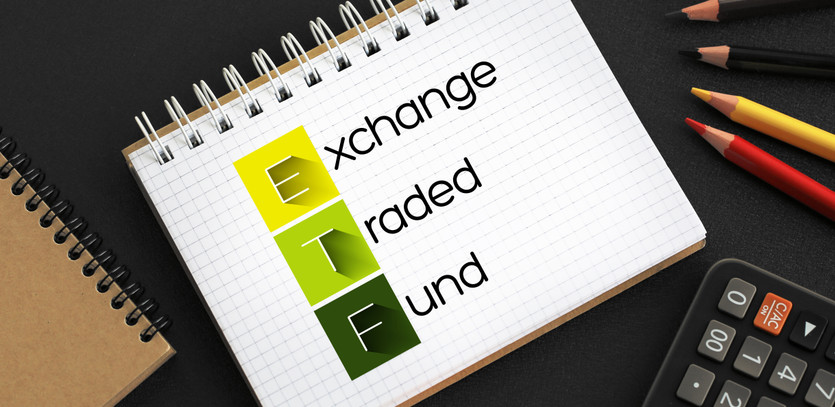At the forefront of the investment world, we find Exchange-Traded Funds or ETFs. These financial instruments represent an aggregation of various securities, such as stocks and bonds, which are bought and sold continuously throughout the day on stock exchanges. When you invest in an ETF, you are effectively acquiring a slice of its diverse array of holdings. This comprehensive guide will illuminate the mechanics of ETFs and arm you with the knowledge necessary to start investing in them with confidence.
Unlocking the Potential Advantages of ETFs in Your Portfolio
ETFs can be a boon for your investment portfolio due to the plethora of benefits they offer. Let's delve deeper into these advantages.
Cost-Effectiveness: With typically low minimum investment requirements, often falling below $1,000, ETFs provide an affordable gateway to the financial markets. This means you can use modest amounts of capital to invest across a spectrum of individual stocks or bonds. This cost-effectiveness is particularly beneficial for those just starting their investment journey or those with smaller budgets, allowing you to gain entry into the world of investing without a hefty initial outlay.
Portfolio Diversification: One of the key tenets of smart investing is diversification—spreading your investment across different asset types to mitigate risk. ETFs allow you to achieve portfolio diversification by offering exposure to a variety of assets. This means you can hold a broad mix of assets, including stocks, bonds, real estate, and commodities, even within smaller portfolios. By spreading your investments across different asset classes, you can potentially reduce the risk of substantial losses due to the poor performance of a single asset or sector.
Transparency: ETFs are renowned for their high level of transparency. They typically reveal their holdings daily, providing you with a clear view of what assets your money is invested in. This openness allows you to make informed decisions about your portfolio, keeping track of your investments and understanding the specific risks associated with each holding.
Professional Management: A critical benefit of investing in ETFs is having access to professional management. ETFs are managed by experienced portfolio managers who strategically select individual securities based on the objective of the ETF. These professionals have an in-depth understanding of the market and can navigate its complexities, potentially enhancing your investment performance. Therefore, even if you're not a seasoned investor, you can still benefit from the expertise of seasoned professionals who can guide your ETF investments toward your financial goals.
Liquidity: ETFs are traded on stock exchanges just like individual stocks, allowing for buying and selling throughout the trading day at market prices. This gives ETFs a high level of liquidity, which can be particularly advantageous in volatile markets or when quick access to cash is necessary.
By understanding these potential advantages, you can make informed decisions about whether to incorporate ETFs into your investment portfolio and how to use them effectively. Keep in mind that the specific benefits of a particular ETF can vary depending on its structure and underlying assets, so it's essential to research each ETF thoroughly before investing.
Appreciating the Potential Costs Involved with ETFs
While ETFs bring a multitude of advantages, understanding the potential associated costs is paramount. ETFs charge shareholders annual operating expenses, although these are usually quite economical, with relatively modest fees and costs—around 0.45% as of 2019.
Furthermore, some broker-dealers may apply commissions when buying and selling ETFs, among other investment products. It is therefore vital to seek information about any potential commissions and account fees upfront.
Crafting Your ETF Investment Strategy
After deciding to step into the world of ETFs, it's important to choose those that resonate with your investment risk profile and time horizon, i.e., the duration you can comfortably leave your money invested. It's also vital to consider your risk tolerance—are you a cautious investor or more inclined towards aggressive investing?
The Attraction of Multi-Asset ETFs
Investment strategies typically kick off by deciding on the distribution of your money into various types of assets, such as stocks, bonds, and commodities—also known as "asset allocation." Multi-asset ETFs offer a combination of different types of assets, catering to conservative, moderate, and aggressive investors.
For instance, an aggressive multi-asset ETF might hold just 17% in bonds, with over 80% allocated to stocks. Conversely, a conservative multi-asset ETF might consist of 66% bonds, with the remaining funds distributed among stocks, cash, and money markets.
Taking the First Step: Opening an Online Trading Account
Choosing a Broker-Dealer Before you can delve into the world of ETFs, you'll need to set up an online trading account, a fundamental tool for accessing the financial markets. This process is quite straightforward and opens up an extensive menu of investment opportunities at your fingertips. To start, you will need to select a reputable broker-dealer. Many well-established online broker-dealers, such as E-Trade, Fidelity, TD Ameritrade, and Vanguard, cater to do-it-yourself investors with easy-to-use platforms and a wide range of resources.
Application Process Once you've chosen a broker-dealer, the process to open an online account typically involves filling out an application form. The form generally requires personal and financial information, including your name, address, social security number, employment information, and details about your financial goals and risk tolerance.
No Minimum Investment Most online broker-dealers have no minimum investment for opening an account, meaning you can get started with any amount you're comfortable investing. However, certain types of trades or investments may require a minimum amount.
Navigating Your Online Account Once your account is open, you will gain access to an array of features. Most online platforms offer a suite of investor research and educational resources to help you make informed investment decisions. You can also usually find interactive tools that enable you to track the performance of your investments and stay updated on market trends.
Mobile Access and Customer Support You may access your account via a desktop or a mobile app, making it possible to manage your investments, conduct research, and execute trades from anywhere, anytime. Furthermore, many broker-dealers offer comprehensive customer service, which can guide you through the process if you need any help.
Opening an online trading account is a vital first step on your ETF investing journey. It not only gives you access to the markets but also equips you with the tools and resources you need to navigate them effectively.
Key Takeaways
In conclusion, ETFs offer an affordable, flexible, and manageable way to diversify your portfolio while benefiting from professional portfolio management. It's crucial to choose ETFs that align with your investment style, preference, risk tolerance, and objectives. Starting your ETF investment journey is as easy as opening an account with an online broker-dealer and exploring the vast array of ETFs available.





